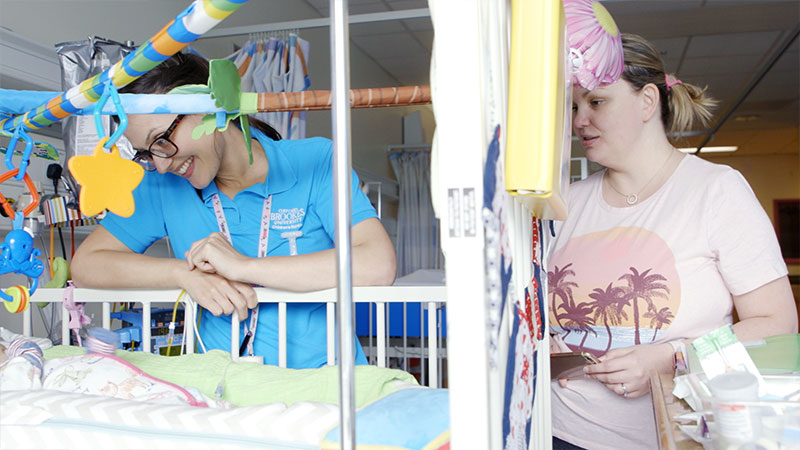Children’s Emergency Care
Credit bearing module
Key facts
Course code
CPD7015
Start dates
January 2026
Application deadline
1 January (for a January start).
Location
Course length
Part time: One semester
This course is not available to students classed as International for fees purposes.
Overview
This single level 7 practice module in Children’s Emergency Care will provide you with in-depth knowledge and understanding in relation to providing care to a child in an emergency environment. Theoretical sessions combining lectures, seminars and practical sessions will enable development of skills in critical exploration of key theories and themes. Consolidation of knowledge will be achieved on the practical environment and with completion of practice competencies.
You will be required to identify a practice supervisor, and will need to complete a minimum of 70 practice hours in a children's emergency clinical environment with your practice supervisor.

How to apply
Entry requirements
You must be a qualified health care professional and have access to a Children’s Emergency Department setting that will enable achievement of the learning outcomes, and will require a practice supervisor.
Terms and conditions of enrolment
When you accept our offer, you agree to the Terms and Conditions of Enrolment. You should therefore read those conditions before accepting the offer.
Application process
Apply through our Moodle Portal.
If you wish to take this as a standalone module then you can apply to be a postgraduate associate student using our online application portal. You will need to register for the portal prior to proceeding with an application.
Tuition fees
Questions about fees?
Contact Student Finance on:
Tuition fees
Fees quoted are for the first year only. If you are studying a course that lasts longer than one year your fees will increase each year.
How and when to pay
Tuition fee instalments for the semester are due by the Monday of week 1 of each semester. Students are not liable for full fees for that semester if they leave before week 4. If the leaving date is after week 4, full fees for the semester are payable.
- For information on payment methods, please see our Make a Payment page.
- For information about refunds, please visit our Refund policy page
Financial support and scholarships
Additional costs
Please be aware that some courses will involve some additional costs that are not covered by your fees. Specific additional costs for this course are detailed below.
Learning and assessment
The teaching, learning and assessment strategy of the module reflects its student centred, patient-centred and practice-focused approach. The module has an appropriate division between structured learning activities and private study. Teaching methods employed will include the flipped classroom approach, problem based learning and clinical scenario seminars. All of the learning methods to be used will engage the student in both academic and practice learning
You will be assessed 100% through coursework.

Learning and teaching
The teaching sessions will incorporate the anatomy, physiology and pathophysiology related to care to a child in an emergency environment and the common conditions that present.
Including:
- Paediatric triage and early warning scores
- Introduction to Assessment and responses in the sick child
- Importance of play
- Specialist care for specific groups, neonates, infants, adolescents and children with disabilities
- Family centred care
- Preparation for invasive procedures, surgical emergencies
- Neurological emergencies
- Management of pain
- Common childhood illness
- Assessment of the child with a rash
- Asthma, Bronchiolitis
- Child protection
- Trauma Management
- Bereavement and sudden infant death
- Management of Minor and Major Traumatic injuries in children
- Life support revision, management of the choking child, insertion of interosseous needles and cardiac arrest management in the paediatric population
Programme changes:
On rare occasions we may need to make changes to our course programmes after they have been
published on the website. For more information, please visit our
changes to programmes page.
